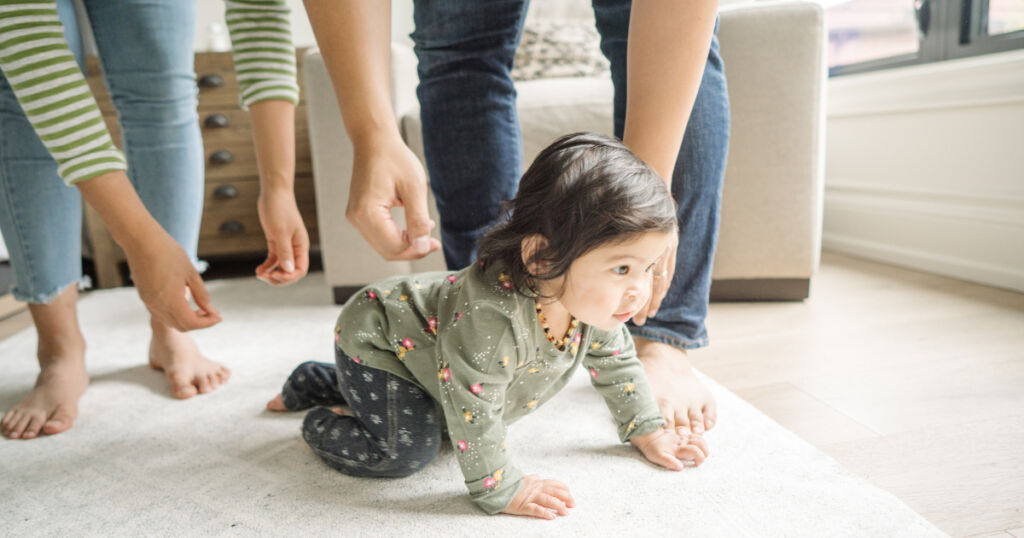Helicopter, snowplough, free range? Pros and cons of 3 parenting styles

Parenting can be a tough gig, and with so many different techniques out there, it can also be an extremely confusing one. Especially as every parent and every child is different, so there’s no one-size-fit-all approach.
Over the years, however, certain parenting styles have been identified – and while they all come from a place of love and care, some methods are better than others when it comes to your child’s future development.
Helicopter parents
Helicopter parenting is a well-known term, used to describe those parents who hover constantly, ready to swoop in and save their child should something go wrong. On one hand, this may keep a child safe from unexpected harm, however the downside is that as they grow up, children can lack much-needed reliance and independence.
According to Monique Robinson, Associate Principal Investigator, Telethon Institute for Child Health Research at the University of Western Australia, research shows that by adulthood, children of helicopter parents have a poorer level of communication with their parents and a heightened sense of personal entitlement.
“Another study of college students found that those who reported helicopter parenting had lower levels of overall well-being and were more likely to be medicated for anxiety or depression, or both,” Monique reported in The Conversation.
A third study however found that children of these parents had better well-being scores than others. “But their parents reported reduced life satisfaction due to their now-grown children still requiring intensive support,” she said.
Snowplough parents
Similar to helicoptering, snowplough parents clear the way for their children, removing any possible obstacle or challenge rather than letting children find solutions themselves. In an interview with Daily Mail Australia, Melbourne parenting expert Sharon Witt explained that snow plough parenting is when parents “feel the need to clear the way of any possible mistakes or poor choices their child may make, or solve issues for them, rather than allowing their child or teenager the opportunity to work through the solution and build their resilience muscle”.
Like any parent, snowplough parents only want what’s best for their children. However this sort of over-parenting runs the risk of robbing kids of the opportunity to learn important life lessons. “As our young people grow up, they are going to be faced with a multitude of obstacles and issues that they will need to learn to tackle themselves,” Ms Witt said
For Ms Witt, the best way to identify a child of snowplough parents is to see those who are unable to deal with common situations, particularly at school. “For example, if a child or teenager forgets to bring their lunch to school, rather than allowing this to be an important lesson for their child to learn, a snow plough parent may be up at the school with lunch in hand, the minute they realise their child’s forgetfulness,” she said. “Children and teens will not starve if they miss lunch on one day at school. This would be a perfect opportunity for a young person to learn resourcefulness.”
Free range parents
Those of us who spent our childhood in the 70s and 80s might recall a more relaxed style of child rearing, which is rarely seen today. However, the term free range parenting was established by Lenore Skenazy, journalist, speaker and president of Let it Grow, a non-profit promoting children’s independence and resilience. In 2008, Lenore wrote an opinion piece about how she let her nine year old son catch the New York subway home alone. The media labelled her “America’s worst mom.”
Ever since, Lenore has been striving to help parents let their kids go so they can develop self-confidence and independence. This is not to say that Lenore doesn’t believe in keeping your child safe. She simply believes that we live in safe times with much less chance of our kids facing danger than we think.
“Obviously, I love safety: My kid wears a helmet, got strapped into a car seats, always wears his seat belt,” she reported in The Washington Post. “But I don’t believe kids need a security detail every time they leave the house.”
Which one are you?
Clearly the way you parent comes down to your personality and that of your child. We all want our children to be safe and loved but maybe that involves not only protecting them from danger, but also preparing them for the future. This doesn’t mean you have to throw any ideas out the window and set your child off to the park unsupervised or refuse to drop their lunch to school if it’s on your way to work – rather finding ways to promote independence and resilience that are suitable for you and your child. We all have to let our children go at some point, for their own good as well as ours, but when that is and how we do it is very much a personal choice
Everything in moderation, even the way we parent.















